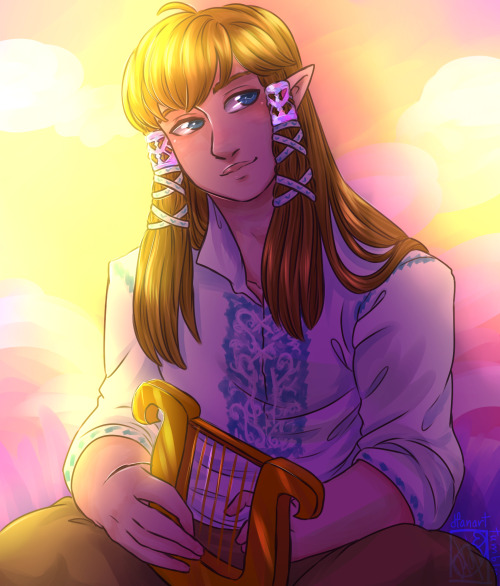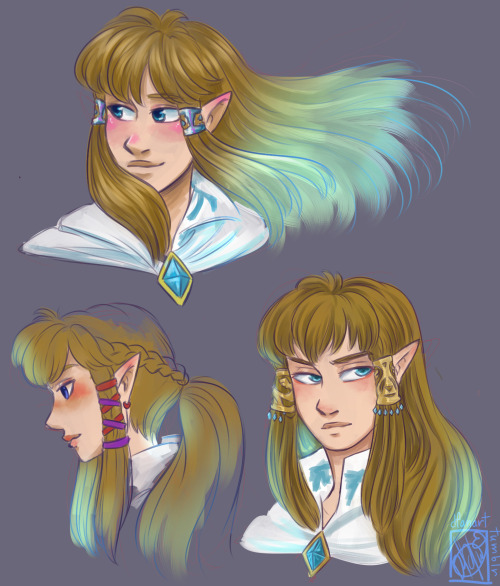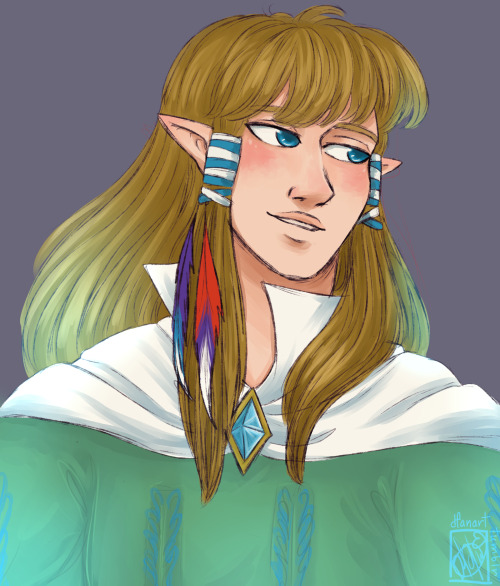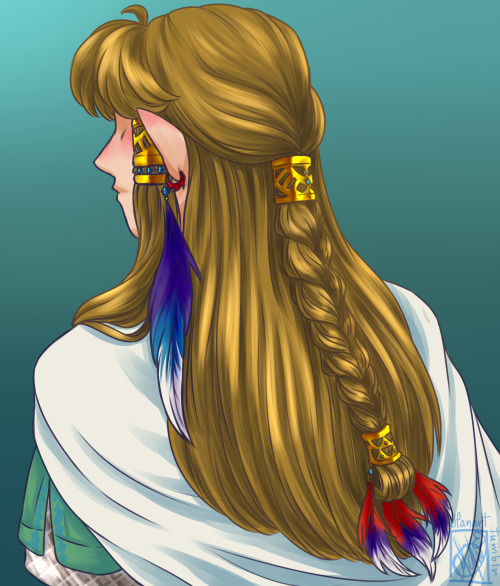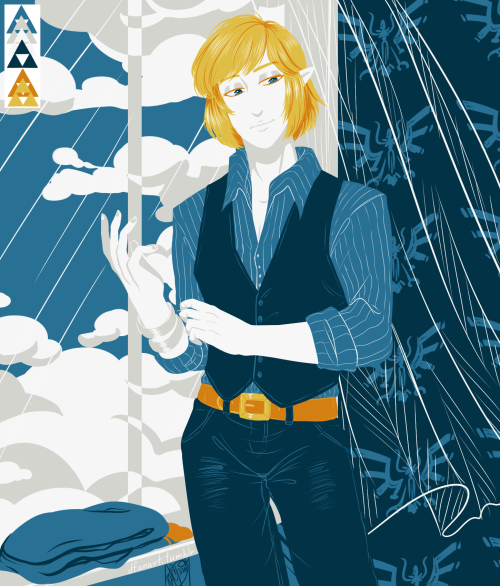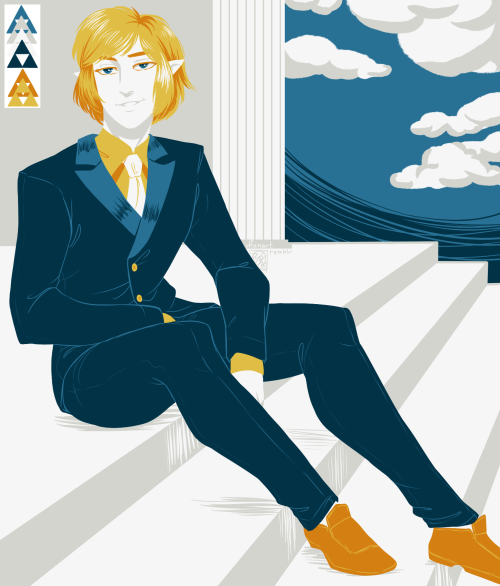#linked universe
In the wake of the popularity of Dracula Daily, I’ve had a thought:
Linked Universe/Dracula AU, Twilight as Quincey Morris
Time: “Are we still on for tomorrow?”
Malon: “…you mean for our wedding?”
Time: “Just making sure”
Weird thought, but I feel like if Flora met Twilight, she’d know he was the Old Wolf on sight. No input from Wild or anything, she just takes one look at our lovely Country Lad and just knows.
Like, I’ve got nothing to back this up with other than vibes, but just imagine:
Flora: “Grandpa Wolf??”
Twilight: *chokes* “—Pardon, ma’am?!”
Can we talk about how Old Wolfie being an inspiration for Wild and current Twilight not knowing is a direct parallel to the Hero’s Shade being an inspiration to Twilight and Time having no idea—
It’s—it’s the continuation of the lineage?? Twilight does exactly what Time did before him for the heroes that came after him??? I’m going to cry???
Hyrule: “What is it called when you kill a friend?”
Wind: “Homiecide.”
Twilight: “Um—murder.”
Warriors: “Homiecide.”
LU Boys as Some of My Favorite Games/Game Franchises
Time: Shadow of the Colossus
Warriors: Fire Emblem
Twilight: Stardew Valley
Sky: Knights of the Old Republic
Legend: Final Fantasy
Wild: Professor Layton
Hyrule: Kid Icarus
Four: Kingdom Hearts
Wind: Monkey Island
Suddenly very attacked by the fact that Legend and Hyrule’s dynamic strongly reminds me of Jack and Crutchie’s in Newsies
Petition to call the Link depicted in the tapestry in BoTW “Calamity” in LU, since he was the one who defeated Calamity Ganon for the first time
How the LU Boys React to Being Sick
I’ve been sick for the past few days, so have some headcanons:
Time: Most likely to hide illness, not out of a fear of showing weakness, but because he refuses to neglect his responsibility as a leader and protector. However, if someone (Twilight) calls him out on his illness jeopardizing his ability to fulfill his responsibility, he will usually submit to being taken care of properly.
Warriors: You’d think he’d be the most likely to exhibit symptoms of a man-cold, and you’d be right…sort of. When he was in the army, and especially because he was in a position of authority, he had to learn how tough out illness. However, if he’s somewhere where he feels he’s safe, he will definitely be dramatic about it.
Twilight: Objectively the best patient. Recognizes when he’s sick, let’s himself be taken care of, takes his medicine. Is likely to be more pensive and melancholy than usual, however.
Sky: He sleeps. This man is dead to the world until he is well again.
Legend: CLINGY. C-L-I-N-G-Y. I said what I said. Additionally, due to his terror of vulnerability, absolutely hates being sick and is also pretty likely to hide it as long as he can. Ten times grumpier than usual, but interestingly tends to lose his sardonic edge and just gets really quiet.
Wild: Tends to act pretty similarly to Time, but not because he’s hiding that he’s sick—he will genuinely not notice that he’s sick. You will never meet anyone less aware of himself in this department. He will just go about his normal routine until his inevitable collapse from exhaustion makes him finally question if something’s wrong.
Hyrule: Also an extremely good patient—he really appreciates being taken care of, as he never had anyone to take care of him when he lived all alone in an apocalyptic Hyrule. He also realizes how difficult it could be when SOME PEOPLE (*ahem*) hide their illnesses or injuries, so he’s not very likely to give much trouble in that department, unless he’s having a particularly low self-esteem day and tries to take care of it himself to avoid being a burden.
Four: Tends to get sick the most severely when he catches something for whatever reason—when he gets sick, he’s down for the count. Just has a terrible immune system. He also tends to get kind of loopy when he’s sick.
Wind: Takes illness like a champ—but perhaps a little too much like one. It’s often difficult to get him to sit still, even when he is sick, and he often tries to return to his normal routine way sooner than he should.
Listen, I love Time very very much, but he IS the dad on his phone texting with one finger and the brightness all the way up in the row in front of you during the movie
Shower headcanon: whenever he feels like causing chaos, Four will, despite being nearly a head shorter than him, refer to Wind as “half-pint”
Sky: *is carrying all the groceries*
Sun: *holds out hand to help*
Sky: *aggressively moves all the groceries to one hand so he can hold Sun’s hand*
Sun: “That’s not what I—okay.”
The idea of liminal space is an extremely important concept in Twilight Princess. If you aren’t already aware, a liminal space is a transitional space, such as a place between two extremes, or a place that serves to connect two places–think of stairwells, hallways, waiting rooms, vehicles, parking lots, or airports. These are spaces that, while meant to be used, are not meant to be occupied for long. You don’t hang out in a waiting room for the sake of it; you wait in a waiting room in order to transition to the doctor’s office. It is because of this that many of us perceive liminal spaces to be eerie or unsettling–we are occupying a space that feels in-limbo, somewhere outside the pace of everyday life.
Writers and filmmakers of horror have been using this to their advantage for hundreds of years, utilizing liminal spaces as settings to build up dread for both the characters and the viewer without ever needing to explain why. Begin looking for liminal spaces in horror and you’ll see them everywhere–i.e., the entire concept of the Korean zombie film Train to Busan, which is set almost entirely on a single train. Liminal spaces do not have to be physical spaces, however, but can also be metaphorical spaces–look no further than The Strange Case of Dr. Jekyll and Mr. Hyde, where one man’s body is the space occupied by the two extremes of the morally upright Jekyll and the deplorable Hyde (granted, this is a little bit of a simplistic reading of the character–but the concept is still in-play).
Twilight Princess, while not a “horror game,” per-se, dips into the tropes that define the genre–including liminal space. Twilight–the place of transition between day and night–is itself a liminal space. Making this concept into an intrusive, almost parasitic force than encroaches itself onto the everyday world is deeply unsettling to us as the player. It is forcing liminality onto places that are not meant to be liminal, creating places of transition that transition to nowhere. Places in the game that have been overtaken by Twilight are empty, strangled into silence that feels like it should be building up to something, but never does. Perhaps it is because of this liminality that all people caught in Twilight are turned into spirits–they are unable to continue with their lives, stuck in the moment when Twilight took over, but unable to ascend to an afterlife. Whenever Link enters this liminal space, he is forced into a form that is not his, in which his normal capabilities are limited. It is only when he leaves the liminal space that he is himself again.
However, despite all this, nearly everyone who has played the game agrees that, despite all of this, there is a certain beauty about Twilight. It is fascinating in its eeriness–just like liminal spaces. Have you ever met anyone who loves airports (of which I am one)? It’s that same sort of appeal. There’s a strange dichotomy between how unsettling and how fascinating it is to occupy these spaces that escape definition.
And here, inevitably, we come to the tragedy of Midna.
Because, she, of course, is a being of Twilight. As one of the Twili, the princess of the Twili, she is defined by liminality. She comes to Hyrule as an outsider, almost something alien, something that does not belong–she is liminal. And she knows it. While her vendetta against Zant and her desire to eliminate his influence is highly personal, there is no doubt that, by the end of the game, she recognizes that Twilight is a corruptive force to the land of Hyrule. But she also realizes in the end how much she cares about Link–while they began their adventure barely tolerating one another, they ended it with mutual trust, and it’s not too much of a stretch to say mutual attraction. However, despite all of this, Midna knows the nature of her existence. The two of them aren’t meant to occupy the same space for long. Perhaps this is why, in the end, despite the tragedy of it all, she shattered the mirror behind her.
Because Midna was liminal. Link was not.
I’m curious as to when exactly a large subgroup of our generation simultaneously went “screw grimdark, give me the most heartbreaking, devastating stories you can fabricate, but disguise it as lighthearted children’s entertainment so that it looks cute and fun but you start sobbing if you squint at it too hard”
LU Playlists According to Val’s Odd Musical Taste Part 4/9: Time
I really have no excuse as to why it took me so long to make another of these….
Anyway, hope I did our favorite father of eight some justice, enjoy!
(Also, note: I’m going to be making an attempt to put all of the playlists I’ve made so far on Spotify for ease of access, so stay tuned :))
Moonlight Sonata by Hidden Citizens
Fields of Gold by Sting
The Second Hand Ticks by Audiomachine
Too Much Is Never Enough by Florence + The Machine
Easy by Son Lux
Aqua by Project Destati
No Chances by twenty one pilots
Huckleberry Finn by Solander
Where Does the Time Go by A Great Big World
When Your Feet Don’t Touch the Ground from Finding Neverland
Woods Darker Than Night by Coeur de pirate
Screen by twenty one pilots
West by Sleeping At Last
How Does a Moment Last Forever by Celine Dion
Dear True Love by Sleeping At Last
Pale White Horse by The Oh Hellos
Shape of My Heart by Sting
Bring Him Home by The Piano Guys
Like Real People Do by Hozier
So I’ve been fiddling around with AI art recently, and last night I decided to run an experiment: without any photo references or art style preferences, I plugged in each of the Linked Universe Links’ names into the art generator, along with two words I associate with them. This is what happened:
“Time, gods, moon”:

“Warriors, scarf, commander”:

“Twilight, wolf, shadow”:

“Sky, birds, sun”:

“Legend, seagulls, traveler”:

“Wild, amnesia, knight”:

“Hyrule, magic, lightning”:

“Four, colors, blacksmith”:

“Wind, sailor, sister”:

I’d like all of you to know that once I asked my brother to make a playlist for Four and he put the Voltron theme in it
I gotta know, why? Is it the idea of colorful characters gathering together to become something greater then the sum of their parts and having to function together to pilot a being that they all equally control?
lol
Four is Voltron
It is, my friend, exactly that—makes me wonder if Power Rangers would work for a similar reason (you know, Zords and all)??
Anyway lol spread the word Four is Voltron
I’d like all of you to know that once I asked my brother to make a playlist for Four and he put the Voltron theme in it
hurrrr the only modern thing i can draw whenever im reminded of any modern LU aus is Warriors in suits.
Post link

